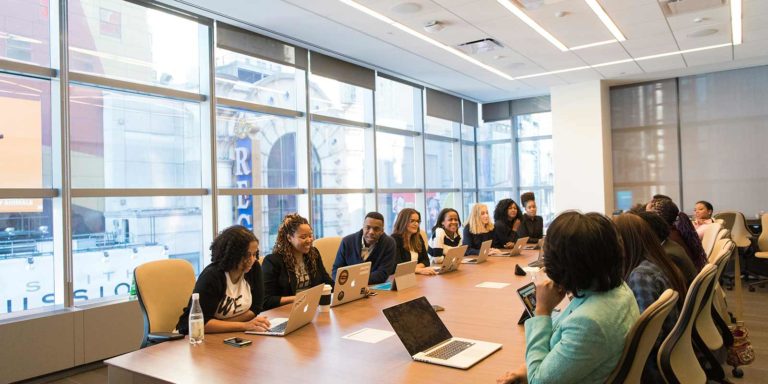
Webinar: Tuesday, April 29th @1pm
Winning at Retention-
Proven Strategies to Reduce Cancellations, Winback Customers & Drive Lifetime Value
Sign up Now

“Culture” is such a big word.
And if the Jack Carew “Odds Are” Factor has taught me anything, it’s that dictionaries define words, but people give them their meaning. So, what does “culture” really mean?
Typically, when we’re talking about culture, we’re talking about the environment…the “vibe.” And oftentimes, the biggest word that comes up is “communication.” The way we communicate with not just our customers but each other internally can make or break an organization’s culture.
I was given the opportunity to partner with an amazing organization last year, and we brought our Dimensions of Professional Selling® (DPS®) program to their sales team. We weren’t even one full day into the training when I had sales reps and leaders coming up to me asking if the rest of the organization could go through the program to improve both internal and external communication. Within the year, we customized the DPS program for their service team, and they’re currently putting another cohort of marketing and HR folks through the training.
Now why on Earth is an organization putting nearly their entire organization through a sales training? Because it’s changing their culture in an incredible way.
One of the biggest and probably most surprising takeaways from our sales training program is around a little thing called “empathy.”
A sales leader who works for this organization said to me recently that they sat in on a team meeting that typically has folks leaving frustrated and still not on the same page and heard the Carew language and methodology being used internally in a way that had colleagues working toward solutions that helped both teams address their gaps and desired outcomes. He said, “Not only did everyone leave the meeting feeling heard and like their needs were being met, but we also walked away with an even better solution that we can present to our clients.”
This leader’s observation aligns with research from the State of Workplace Empathy Study, showing that 67% of employees believe that empathy in the workplace leads to better teamwork and collaboration.
This type of feedback is not new to us at Carew. In fact, most of our clients would say that their team’s culture changed when they went through our DPS training. And I can say, as a former client of Carew’s before joining the team here, this is exactly what happened at my organization.
Below are three practices from our DPS program that can help improve your culture.
#1: Jack Carew’s research taught us that the “Odds Are” 2:1 that, when we’re communicating with others, we are not only hearing their message through our own biased filters but that this tends to produce an ego-driven reaction like, “How does this impact me?” It doesn’t make us bad people…it’s human nature.
But when we’re aware of it and conscientious enough to remove our filters and listen and understand the other person’s perspective, we can do a better job connecting and bonding with others.
So, in your organization, give each other the benefit of the doubt. Remember: We’re all different and have different perspectives, and the better you are at trying to see through someone else’s lens, the better your relationship will become. And kindness and empathy are truly infectious and will spread throughout your entire team and organization.
#2: What’s a surefire way to ensure you’re not operating in your own selective perception but seeing the situation objectively or through another’s lens? By listening, acknowledging, exploring, and responding (LAER). When we utilize the LAER bonding and communication process, we are communicating in a way that shows we care.
Of course, customers feel this care, but do you know who else does? Your peers, employees, and managers. Use the common language and say, “OK, clearly we’re coming at this from a different Odds Are. Let me LAER this a little bit and see if I can’t understand better.” If someone says that to me, my guard immediately drops, and I know we’re about to have a productive conversation.
#3: Lastly, I’m going to dive deeper into one step in LAER, and that is the “acknowledge” step. It can be the easiest one to skip because, after we have listened to what someone else has had to say, it’s very easy to jump immediately into a question (Why did you think that? Why did you do that? What happened then?) It’s even easier to jump to a response and try to “solve it” quickly. But when you make an effort to acknowledge others, you are showing empathy and care – two things that are becoming more and more important in today’s environment!
Whether it involves acknowledging and recognizing someone’s efforts and/or successes, acknowledging your part in a misunderstanding, or acknowledging someone else’s feelings or perspective, you are going to improve your relationships and create a more positive culture.
If you’re reading this blog and are looking to improve your sales and service team’s performance, while also looking to create a more positive culture, here’s your sign – let’s talk.
For nearly 50 years, Carew International has been the single-source strategic partner for sales, customer service, and leadership professional development. Carew helps companies grow by building customer-centric, high-performance sales and leadership cultures that are well prepared to navigate dynamic business environments. Their transformative training experience inspires dramatic, lasting performance improvement and competitive advantage for their clients.
Consistently named a Top Sales Training Company by Selling Power magazine, Carew has garnered an impeccable reputation within both the training sector and the global business arena. Carew proudly counts some of the world’s most esteemed corporations as their clients.
Additional resources and Open Enrollment Workshop information are available on Carew’s website.
Kashina Cusson is a client partner with Carew International.
Get the latest sales leadership insight, strategies, and best practices delivered weekly to your inbox.
Sign up NOW →